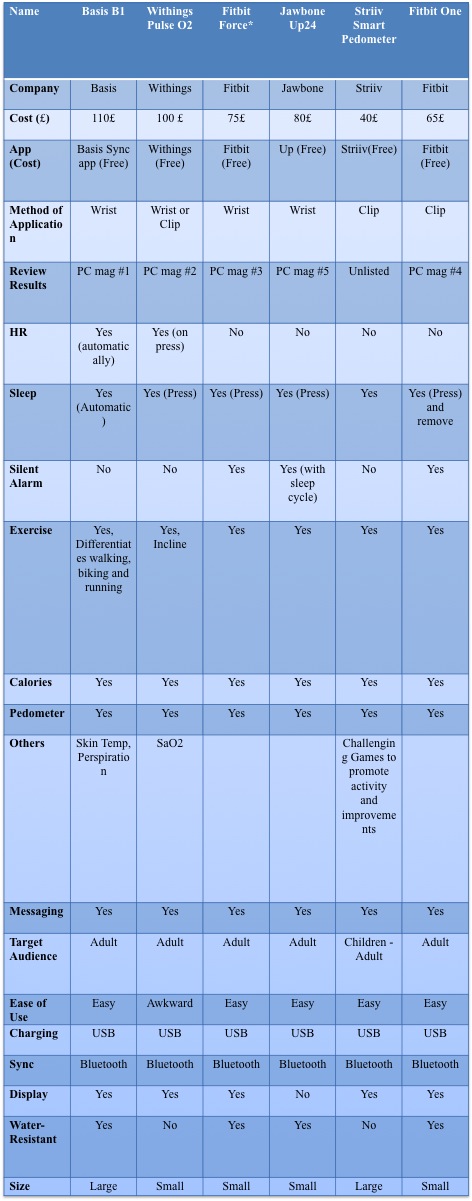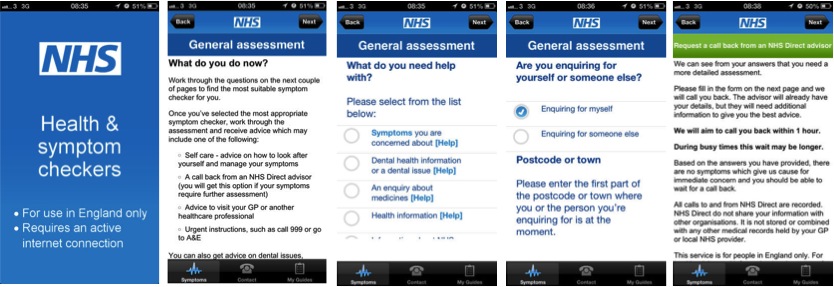Self-management Techniques to Enhance Physical Activity
Original Editor - - Justin Louie, Stuart Maytham, Dawn Williams, Paul Reen, Janelle Eisler-Carr, Ciara Wright as part of the QMU Current and Emerging Roles in Physiotherapy Practice Project
Top Contributors - Justin Louie, Ciara Wright, Stuart Maytham, Kim Jackson, Paul Reen, 127.0.0.1, Evan Thomas, Admin, Scott Buxton and Rucha Gadgil </div>
Introduction[edit | edit source]
Learning Outcomes[edit | edit source]
- Appraise the various health behaviour change tools currently available on the market
- Compare the various health behaviour change models in relation to increasing Physical Activity levels
- Construct a health behaviour change tool specific to your clinical area
- Critically evaluate the use of "quantified self" with patients experiencing health related lifestyle barriers
What is Behaviour?[edit | edit source]
Behaviour is the range of actions and mannerisms made by individuals, organisms, systems, or artificial entities in conjunction with themselves or their environment.
It is the response of the system or organism to various stimuli or inputs, whether internal // external (being worried about your health and/or appearance // going to the gym) conscious // subconscious (deciding you should go for a walk // associating exercise with fun and reward) overt // covert (going out for a run // lying about exercise) voluntary // involuntary (deciding you should go for a walk // missing the bus and having to walk)
Why is the General Population so Inactive?[edit | edit source]
Social • Sedentary behaviour is woven into society Cultural • As a nation seek immediate reward over flourishing Structural Economical Physiological • Malnutrition, poor sleep, higher stress, lower self-efficacy = lower energy and motivation
Sub Heading 3
[edit | edit source]
Current tools Available[edit | edit source]
Increasing Physical Activity[edit | edit source]
| [1] | [2] |
Current Apps[edit | edit source]
Currently, the NHS has started using smartphones and apps to help engage the public. Such as with the NHS Health and Symptom Checker, which allows users to to check their symptoms, get an assessement and information on their condition, and be given advice how to get better.
Future Practice[edit | edit source]
At the recent CSP Physiotherapy Conference 2014 delegates were asked: "Are physiotherapists the exercise specialists of choice for people with long-term conditions?", With the response being a resounding yes. Physioterapist were described as being ideal in solving the dilemma of lack of adherence to exercise programmes.[3]
Recent Related Research (from Pubmed)[edit | edit source]
Extension:RSS -- Error: Not a valid URL: Feed goes here!!|charset=UTF-8|short|max=10
References[edit | edit source]
References will automatically be added here, see adding references tutorial.
- ↑ Dr Mike Evans. 23 and 1/2 hours: What is the single best thing we can do for our health?. Available from: http://www.youtube.com/watch?v=aUaInS6HIGo [last accessed 30/12/14]
- ↑ Dr Margaret Morris. Changing Health Behaviours: From Facebook to Smartphones. Available from: https://www.youtube.com/watch?v=RXDmmxJsAdk [last accessed 30/12/14]
- ↑ CSP. Physio 14: Physio's are the exercise specialists of choice, delegates say. Available from:http://www.csp.org.uk/news/2014/10/11/physio-14-physios-are-exercise-specialists-choice-delegates-say [last accessed 30/12/14]









